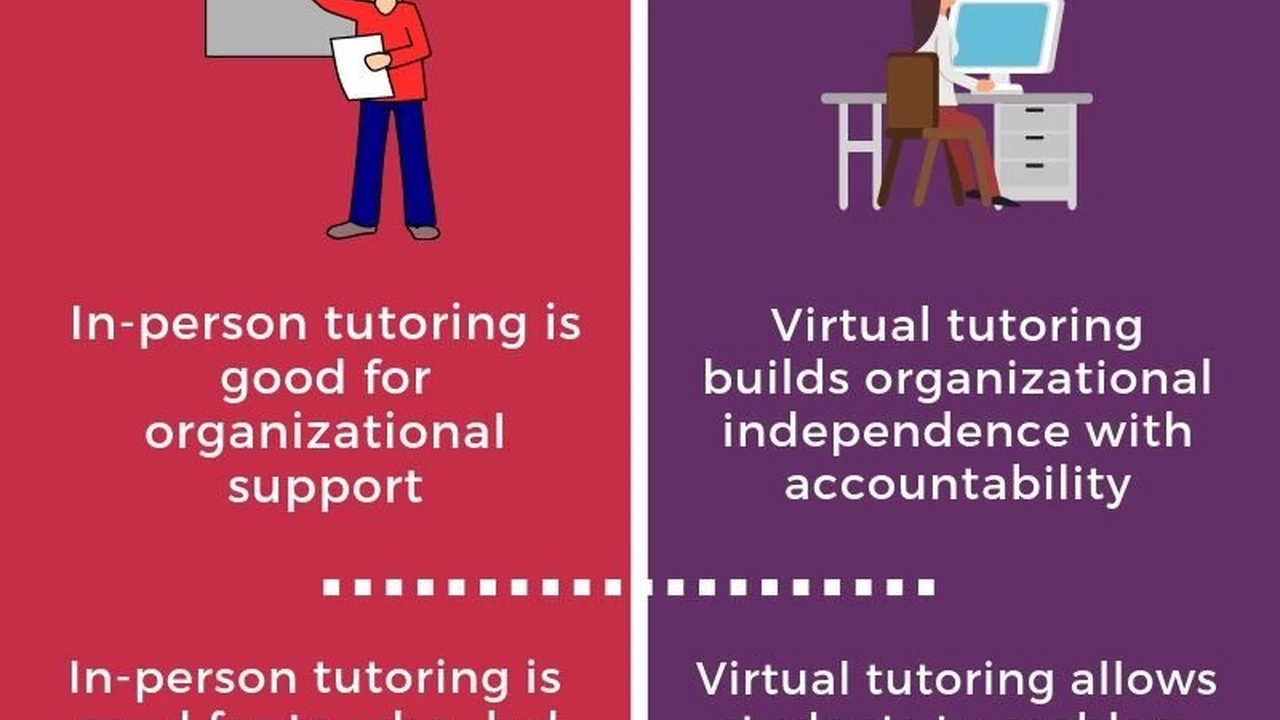Best Student Clubs and Organizations to Join
Enhance your university experience by joining the best student clubs and organizations. Discover opportunities for growth and connection.

Best Student Clubs and Organizations to Join
Why Joining Student Organizations Matters for Your University Journey
Stepping onto a university campus can feel like entering a whole new world. There are new faces, new routines, and a seemingly endless array of opportunities. Among the most impactful of these opportunities is joining student clubs and organizations. It’s not just about having something to do in your free time; it’s about enriching your academic journey, building crucial skills, and forging connections that can last a lifetime. Think of it as an investment in your personal and professional development, a way to truly make the most of your college years beyond the classroom.
Many students initially focus solely on academics, which is understandable. However, university life is a holistic experience. The skills you gain outside of lectures – leadership, teamwork, communication, problem-solving – are just as vital, if not more so, for your future career and personal growth. Student organizations provide a structured yet flexible environment to cultivate these skills. They offer a safe space to experiment, take on responsibilities, and even fail and learn from those experiences, all while being supported by a community of like-minded peers.
Beyond skill development, these groups are fantastic for networking. You’ll meet students from different majors, backgrounds, and even different years, expanding your social circle and professional contacts. These connections can lead to study groups, internship opportunities, job referrals, and lifelong friendships. For international students, joining clubs is an invaluable way to integrate into campus culture, practice language skills, and build a support system away from home.
Exploring Different Types of Student Organizations and Their Benefits
University campuses are vibrant ecosystems, and their student organizations reflect this diversity. There’s truly something for everyone, no matter your interests or aspirations. Let’s break down some common categories and what they offer:
Academic and Professional Clubs Boosting Your Career Prospects
These clubs are directly tied to specific academic disciplines or career paths. They’re perfect for deepening your understanding of your major, exploring potential careers, and networking with faculty and industry professionals. Examples include:
- Engineering Societies (e.g., IEEE, ASME, ASCE): These often involve hands-on projects, guest speakers from engineering firms, and competitions. For instance, an IEEE student chapter might host workshops on circuit design or invite engineers from Intel or Qualcomm to speak about industry trends.
- Pre-Med or Health Professions Clubs: Offering shadowing opportunities, MCAT/GRE prep resources, and connections with medical professionals. They might organize visits to local hospitals or bring in doctors to share their experiences.
- Business and Finance Associations (e.g., American Marketing Association, Finance Club): Focus on case studies, investment challenges, and networking events with alumni in the business world. They could host a mock stock market competition or invite recruiters from Deloitte or PwC.
- Computer Science Clubs: Often involve hackathons, coding challenges, and workshops on new technologies. A CS club might organize a 24-hour hackathon sponsored by Google or Microsoft, providing real-world problem-solving experience.
- Journalism or Communications Clubs: Running student newspapers, radio stations, or TV channels, providing practical experience in media production and content creation.
Product Recommendations for Academic Clubs:
- For Engineering/CS Clubs:
- Arduino Starter Kit: (Approx. $30-$60) Great for beginners to learn electronics and programming. Brands like Elegoo or official Arduino kits are popular.
- Raspberry Pi 4 Model B: (Approx. $35-$75) A versatile single-board computer for more complex projects, robotics, and IoT.
- GitHub Student Developer Pack: (Free with student ID) Access to a suite of developer tools and services, including cloud credits, IDEs, and more.
- For Business/Finance Clubs:
- Wall Street Journal Digital Subscription: (Student discount available, approx. $4/month) Essential for staying updated on market news and business trends.
- Bloomberg Terminal Access (if available through university): (Extremely expensive, but some universities provide access) The industry standard for financial data and analytics.
- For Journalism/Communications Clubs:
- Blue Yeti USB Microphone: (Approx. $99-$129) Excellent for podcasting, interviews, and voiceovers.
- Adobe Creative Cloud Student Plan: (Approx. $19.99/month) Access to Photoshop, Premiere Pro, Audition, and more for media creation.
Service and Volunteer Organizations Making a Difference
If you’re passionate about giving back to the community, these clubs are for you. They offer opportunities to engage in meaningful work, develop empathy, and understand societal issues. Examples include:
- Habitat for Humanity Campus Chapter: Building homes for those in need, offering hands-on construction experience and community engagement.
- Red Cross Club: Organizing blood drives, disaster relief efforts, and health awareness campaigns on campus.
- Environmental Clubs: Focusing on sustainability initiatives, campus clean-ups, and advocating for environmental policies. They might organize a recycling drive or a campus garden project.
- Tutoring Programs: Providing academic support to local K-12 students or fellow university students.
Product Recommendations for Service Clubs:
- Reusable Water Bottles and Coffee Cups: (Approx. $15-$40) Brands like Hydro Flask or Stanley for environmental clubs to promote sustainability.
- First Aid Kits: (Approx. $20-$50) For Red Cross or general campus safety initiatives.
- Gardening Tools (for campus gardens): (Approx. $50-$100 for a basic set) For environmental or community garden projects.
Arts and Culture Groups Unleashing Your Creativity
These clubs are perfect for expressing yourself, exploring new art forms, and connecting with fellow creatives. They often culminate in performances, exhibitions, or publications. Examples include:
- Theater and Drama Clubs: Producing plays, musicals, and improv shows. You can act, direct, work backstage, or help with costumes and sets.
- Dance Troupes: Covering various styles from hip-hop to ballet, often performing at campus events.
- Music Ensembles: Choirs, orchestras, jazz bands, or acapella groups.
- Literary Magazines and Creative Writing Groups: Publishing student work and hosting poetry readings or writing workshops.
- Photography Clubs: Organizing photo walks, workshops, and exhibitions.
Product Recommendations for Arts & Culture Clubs:
- For Photography Clubs:
- Entry-Level DSLR/Mirrorless Camera (e.g., Canon Rebel T7, Sony Alpha a6000): (Approx. $400-$700) Good for learning photography basics.
- Adobe Lightroom/Photoshop Subscription: (Part of Creative Cloud, approx. $19.99/month) Essential for photo editing.
- For Music/Drama Clubs:
- Portable Bluetooth Speaker (e.g., JBL Flip 6, Ultimate Ears Boom 3): (Approx. $100-$150) For rehearsals or small performances.
- Sheet Music Stands: (Approx. $20-$40) Basic equipment for musicians.
- For Creative Writing Clubs:
- Moleskine Notebooks: (Approx. $15-$25) Classic choice for writers.
- Scrivener Software: (Approx. $49) Popular writing software for organizing long-form projects.
Sports and Recreation Clubs Staying Active and Competitive
Whether you’re a seasoned athlete or just looking to stay active, these clubs offer a great way to exercise, relieve stress, and build camaraderie. They range from competitive club sports to casual recreational activities.
- Club Sports (e.g., Soccer, Basketball, Volleyball, Rugby): More competitive than intramurals but less demanding than varsity sports. They often compete against other universities.
- Outdoor Adventure Clubs: Organizing hiking, climbing, kayaking, or camping trips.
- Yoga or Meditation Groups: Focusing on physical and mental well-being.
- Running Clubs: Training together for local races or just for fitness.
Product Recommendations for Sports & Recreation Clubs:
- For Outdoor Adventure Clubs:
- Osprey Daylite Plus Backpack: (Approx. $65-$80) Versatile for day hikes and general use.
- Headlamps (e.g., Black Diamond Spot 400): (Approx. $40-$50) Essential for camping or night activities.
- CamelBak Hydration Pack: (Approx. $30-$70) For staying hydrated during longer activities.
- For Running Clubs:
- Garmin Forerunner 55 GPS Running Watch: (Approx. $199) Tracks distance, pace, heart rate, and more.
- Good Quality Running Shoes: (Approx. $100-$160) Brands like Brooks, Hoka, or Saucony.
Special Interest and Hobby Groups Finding Your Niche
These clubs cater to a vast array of niche interests, allowing you to connect with people who share your unique passions. This is where you can truly find your tribe.
- Gaming Clubs: From board games to video games, often organizing tournaments and casual play sessions.
- Anime and Manga Societies: Discussing Japanese animation and comics, often hosting screenings and cosplay events.
- Foodie Clubs: Exploring local restaurants, cooking together, or organizing potlucks.
- Debate Societies: Sharpening public speaking and critical thinking skills through structured debates.
- Cultural Associations: Celebrating specific cultures through events, food, and traditions (e.g., Chinese Student Association, African Student Union).
Product Recommendations for Special Interest Clubs:
- For Gaming Clubs:
- Nintendo Switch: (Approx. $299) Versatile for group gaming sessions.
- Popular Board Games (e.g., Catan, Ticket to Ride, Codenames): (Approx. $25-$60 each) Great for social gatherings.
- For Foodie Clubs:
- Instant Pot Duo 7-in-1 Electric Pressure Cooker: (Approx. $79-$120) Versatile for dorm cooking or club events.
- Cookbooks focused on student-friendly meals: (Approx. $15-$30)
- For Cultural Associations:
- Portable Projector (e.g., Anker Nebula Capsule): (Approx. $250-$350) For movie nights or cultural presentations.
- Traditional Craft Supplies: (Varies widely) Depending on the specific cultural activities.
How to Choose the Right Student Organizations for You
With so many options, how do you pick? It can feel overwhelming, but a strategic approach can help you find the perfect fit.
Assessing Your Interests and Goals Aligning with Your Passions
Start by reflecting on what truly excites you. Do you want to develop a specific skill, meet new people, explore a career, or simply have fun? Make a list of your hobbies, academic interests, and what you hope to gain from your university experience. Don’t just join something because your friends are in it; find something that genuinely resonates with you.
Attending Involvement Fairs and Open Houses Discovering Opportunities
Most universities host an “Involvement Fair” or “Club Rush” at the beginning of each semester. This is your golden opportunity! Tables will be set up for hundreds of organizations, often with current members eager to tell you about their activities. Grab flyers, ask questions, and sign up for email lists. Many clubs also host open houses or introductory meetings, which are low-commitment ways to get a feel for the group before fully committing.
Considering Time Commitment and Balance Managing Your Schedule
Be realistic about your schedule. While it’s tempting to join everything, overcommitting can lead to stress and burnout. Aim for one or two organizations that genuinely interest you, especially in your first semester. You can always add more later. Ask about the typical time commitment for meetings, events, and projects. A good rule of thumb is to ensure your club activities don’t negatively impact your academic performance or personal well-being.
Trying Out Different Groups Experimenting and Exploring
Don’t be afraid to try out a few different clubs before settling on one or two. Most organizations are happy for prospective members to attend a meeting or two to see if it’s a good fit. This trial period is crucial for finding a group where you feel comfortable, engaged, and valued. If a club isn’t what you expected, it’s okay to move on and explore other options.
Maximizing Your Experience in Student Organizations
Once you’ve joined, how do you make the most of it? It’s about active participation and taking initiative.
Active Participation and Engagement Contributing to the Group
Simply showing up isn’t enough. Get involved! Volunteer for tasks, contribute ideas during meetings, and participate in events. The more you put in, the more you’ll get out of the experience. This active engagement demonstrates your commitment and helps you build stronger relationships with other members.
Taking on Leadership Roles Developing Key Skills
As you become more comfortable, consider taking on a leadership role, even a small one. This could be organizing an event, managing a social media account, or serving on a committee. Leadership positions offer invaluable experience in project management, team coordination, and decision-making, all of which are highly sought after by employers. Even if you don’t aim for a formal title, simply taking initiative within the group can be a form of leadership.
Networking with Peers and Alumni Building Your Connections
Student organizations are prime networking grounds. Get to know your fellow members, especially upperclassmen who can offer advice on courses, internships, and career paths. Many clubs also have alumni networks, providing opportunities to connect with professionals in your field of interest. Attend alumni events and don’t be shy about reaching out for informational interviews.
Documenting Your Experiences for Resumes and Interviews Showcasing Your Growth
As you gain experience, make sure to document it! Keep a running list of your responsibilities, achievements, and the skills you’ve developed. These experiences are gold for your resume, cover letters, and job interviews. Be ready to articulate how your involvement in a club helped you develop leadership, teamwork, communication, or problem-solving skills. For example, instead of just saying “Member of the Debate Club,” you could say, “Led a team of three to research and present arguments for weekly debates, improving public speaking and critical thinking skills.”
Common Pitfalls to Avoid When Joining Clubs
While joining clubs is overwhelmingly positive, there are a few things to watch out for.
Overcommitment and Burnout Balancing Your Life
As mentioned, joining too many clubs can quickly lead to feeling overwhelmed. Prioritize your academics and personal well-being. It’s better to be deeply involved in one or two organizations than superficially involved in five.
Joining for the Wrong Reasons Authenticity Matters
Don’t join a club just because it looks good on a resume if you have no genuine interest. You’ll quickly lose motivation, and it won’t be a fulfilling experience. Authenticity shines through, and genuine passion will make your involvement much more impactful.
Not Taking Initiative Active Engagement is Key
If you join a club but never participate beyond showing up to meetings, you won’t reap the full benefits. Push yourself to contribute, volunteer, and take on responsibilities. The growth happens when you step outside your comfort zone.
The Lasting Impact of Student Organizations on Your Future
The experiences you gain in student organizations extend far beyond your graduation day. The skills you develop – leadership, teamwork, communication, problem-solving, time management – are universally valuable in any career path. The network you build can open doors to internships, job opportunities, and mentorship. Many professionals look back at their club involvement as foundational to their success.
Moreover, these organizations help you discover more about yourself. You might uncover hidden talents, develop new passions, or solidify your career aspirations. They provide a sense of belonging and community, which is crucial for navigating the challenges of university life. So, as you embark on your academic journey, remember that the classroom is just one part of the equation. The vibrant world of student clubs and organizations awaits, ready to transform your university experience into something truly extraordinary.
:max_bytes(150000):strip_icc()/277019-baked-pork-chops-with-cream-of-mushroom-soup-DDMFS-beauty-4x3-BG-7505-5762b731cf30447d9cbbbbbf387beafa.jpg)






